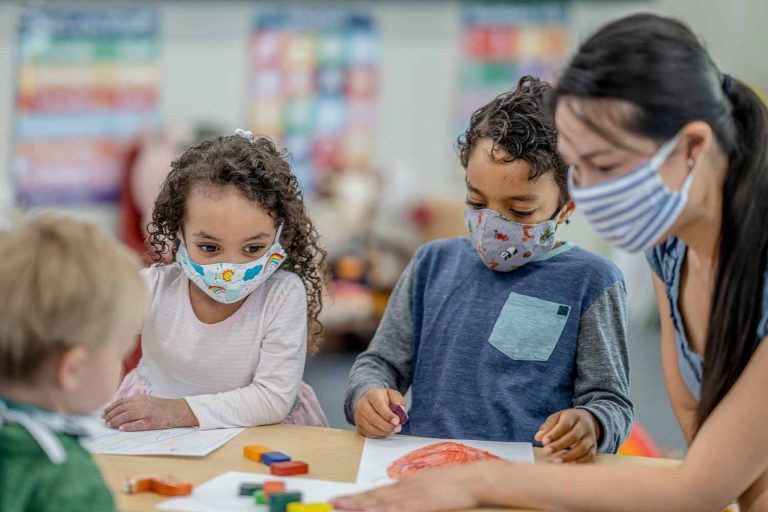The ongoing Covid-19 pandemic has been a stressful time for everyone. Especially for the teens and younger kids. The pandemic causes isolation, grief, and change, and this way of life has caused Canadian youth mental health issues to increase.
Statistics taken by CBC news states that there has been a 30 percent increase in the need for youth counselling and addiction services for youth groups. McMaster Children’s Hospital says in an interview with CBC news that it has seen a steady increase of youth in crisis since the Covid-19 pandemic began. According to the hospital, youth admitted for medical support after a suicide attempt has tripled over a four-month period, compared to last year.
A large number of these youth have reported pandemic-related stresses and concerns including limited social interaction, increased conflict at home, and the inability to rely on friends as main supports. A similar increase in young people are showing up at the emergency department, suffering from anxiety, self-harm, and depression as well as some with a sixty percent increase in eating disorders amongst youth.
According to a survey taken by Statcan in July 2020; Canadian youth have experienced the greatest mental health decline of all the other age groups. Before the pandemic, sixty percent of youth aged 15-24 reported that they had good mental health. As of July 2020 only forty percent of youth report that they have good mental health. That is a twenty percent reduction. Although it may not seem that large, it is.
“We found that overall, children were faring mostly worse, and occasionally better, compared to their pre-pandemic selves,” says Dr. Daphne Korczak, Child and Adolescent Psychiatrist at SickKids. Children and youth who are struggling with their mental health may display signs that caregivers can notice, such as abnormal sleeping and eating patterns and expressions of distress.
The extreme shift in schedule and way of life is going to have some sort of effect on people. The pandemic has forced teens to be removed from normal everyday interactions. Personally, it was very difficult at the beginning being unable to see friends everyday and it felt very isolating. The change to virtual school caused my grades to plummet without the in person teacher there to help.
School routines have forced teens to change their schedule and way of life. Traditionally, schooling was in person with different classes and classrooms full of other people. Seeing your friends and teachers everyday and hanging out after school was normal. Now, everything from social interaction to exams are online.
It is very isolating. Covid-19 restrictions, staying in and isolating becomes the only way to stay physically safe and stop the spread of the virus. This is important because it is the only way for things to get better and to keep yourself and others safe.
Canada has had over twenty-five-thousand lives lost due to this virus. That being said, isolation isn’t the only thing causing youth mental health issues this pandemic. It is grief. Whether it be for a friend, family member or just the overall deaths.
Make sure that in these tough times you are keeping in contact with your friends and family. Whether it be over the phone, online games, or more. Remember you are not alone.
Another big issue is that some teens feel that they are in unsafe homes and environments. Several teens may not have that great of a home life and for them, school and going out was their only outlet and escape from their home life. This escape can make a huge impact on one’s overall mental health, and sometimes physical health.
The hope of us all getting vaccinated and things getting better, such as going back to school is something to look forward to. Although it may feel so far away, it is closer than it seems.
If you or someone you know is struggling with mental health issues, reach out to them or seek immediate assistance if you think that you or a loved one is in danger of harming themselves.
You can call a crisis line or the National Suicide Prevention Line at 1-800-273-TALK (8255). If you think your friend or family member is in need of community mental health services you can find help in your area.
Sources
https://www150.statcan.gc.ca/n1/pub/11-631-x/2020004/s3-eng.htm
https://www150.statcan.gc.ca/n1/daily-quotidien/210302/dq210302d-eng.htm
https://www.cbc.ca/news/canada/hamilton/pandemic-safety-measures-children-teen-health-impact-1.5953326
https://www.sickkids.ca/en/news/archive/2021/impact-of-covid-19-pandemic-on-child-youth-mentalhealth/
https://www.cdc.gov/mmwr/volumes/69/wr/mm6945a3.htm
https://torontosun.com/news/local-news/youth-suicide-attempts-increase-during-the-pandemic-study



